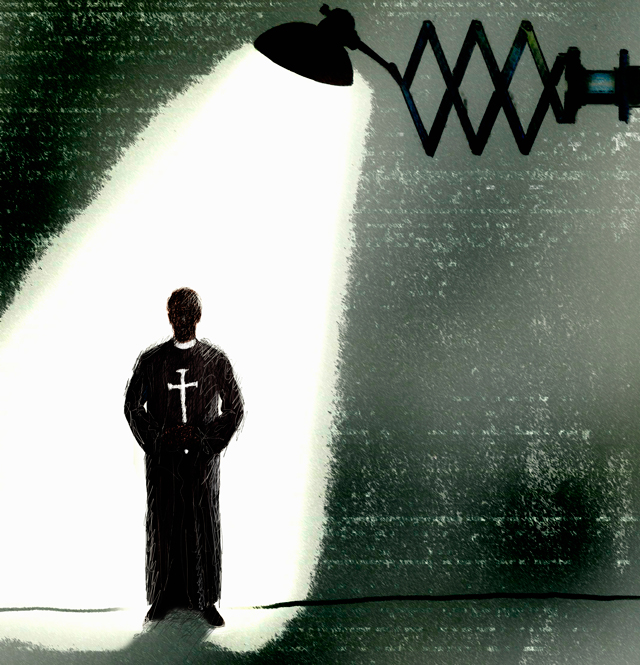Sins of the Father
New Zealand Listener
In a book published in 2007, retired Australian Catholic bishop Geoffrey Robinson bravely called on his church to rethink its approach to sexuality. In particular, he argued that forced celibacy was one of the causes of sexual abuse in the church. Celibacy was not a gift given to everyone, Robinson wrote. For some, it could become a heavy burden that harmed their ability to be good human beings. His conclusions were based on nine years spent working with victims of clerical abuse. But far from being commended for his courage and insight, Robinson was rebuked by the church hierarchy for daring to question Catholic teaching. Tragically, that stubborn, blind adherence to rigid dogma continues to cause enormous anguish and pain. That was evident in the Wellington District Court recently when former priest Peter Joseph Hercock, 72, was sentenced to a long prison term for sex offences committed against vulnerable girls when he was a “counsellor” – we use inverted commas because he had no training for the role – at a Catholic girls’ school in Lower Hutt during the 1970s. In simple but eloquent victim-impact statements, four complainants gave compelling accounts of the psychological damage inflicted when they were raped or indecently assaulted by Hercock after going to him for advice about personal problems and troubled home environments. Being assaulted by a priest, one victim said, was too much for a young Catholic girl to get her head around. The ghastly memory of the sex act had never left her. “I was a virgin when you assaulted me, and when it was over, I wasn’t,” she told Hercock. Three of the women had been paid compensation by the church, but they rightly continued to seek justice, even after the police initially refused to take up their case. All four told of long-term consequences that included a suicide attempt, a breakdown and problems with alcohol and drugs. One blamed herself for corrupting Hercock; she had been taught that men were incapable of controlling their lust and it was up to women not to tempt them. Another complainant was labelled a jezebel by a senior church figure. The women’s statements were a powerful indictment of the ignorance, guilt, confusion and misery promoted by the Catholic Church’s cruel and often misogynistic teaching on sexuality. Hercock, who left the priesthood in the 1980s and was supported in court by his wife, was told by Judge Bill Hastings that he had stolen the girls’ faith. “There can be no greater hypocrisy from a priest,” the judge added. But Hastings also commented that as a young priest, Hercock was out of his depth. Here he touched on an aspect of the case that no sentence could resolve. In a sense, Hercock was not alone in the dock. Also present, although invisible, was the church itself. Hercock entered the Catholic seminary at age 17, an age when many men are grappling with their emerging sexuality. He was only 26 when the offending began. It might have been helpful had someone from the church been in court to explain how a man so young and inexperienced, and with no qualifications or proper training as a counsellor, was placed in a position where he was required to give intimate advice to troubled girls. Hercock’s lawyer remarked that his boundaries were well and truly blurred. “Goodness knows why the Catholic Church thought counselling was an appropriate position for him, but they did.” A priest who submitted a statement in support of Hercock was admirably frank. Putting a young priest into a girls’ school seemed like madness now, he said. Immature young priests were a danger to themselves as well to the girls they were expected to help. It was a statement that, while not exonerating Hercock, acknowledged the glaring futility of the celibacy rule and the hypocrisy that surrounds it. Many priests cope well with celibacy and lead unblemished lives. Others, however, are unable or unwilling to suppress their natural need for intimacy, leading to catastrophically twisted outcomes. Much is made of Pope Francis’ reformist impulse, but he has shown no inclination to tackle the fossilised mindset that not only enforces priestly celibacy but also continues to deny women a full role in the church. Sexuality is a natural and essential part of the human condition. As the worldwide epidemic of sexual abuse by priests has shown, sublimating it leads to exploitation and predation – the very antithesis of what Catholicism purports to stand for.
|
.
Any original material on these pages is copyright © BishopAccountability.org 2004. Reproduce freely with attribution.
